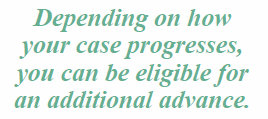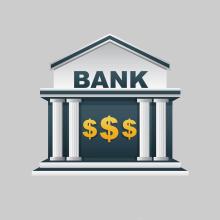Can I take multiple advances on my case?
Yes, depending on how your case progresses, many plaintiffs can receive multiple advances on their case. As stated before, most cases will take a year or more before being resolved so as a plaintiff continues to treat for their injuries and potentially has a surgery, value is added to the case. As the value of the case rises and becomes more certain, most funding companies will be willing to make additional advances.
If the funder you originally used is un-able to offer you additional funding, you may contact another funder to see if they can help. If another funder approves you for an advance, they would just have to obtain a payoff letter from your original funder and payoff what is owed. Plaintiffs are not permitted to have multiple funders on their case at the same time.
Alternatives to taking a pre-settlement advance
A pre-settlement advance can be expensive depending on the amount you borrow and the funder company you choose. It is always a good idea to consider alternatives before making your decision.
- Savings: Don’t borrow money until you run out of savings. It doesn’t cost anything to use your savings account!
- Friends and Family: Borrowing from friends and family can be difficult and uncomfortable, but it couldn’t hurt to ask. Let them know your situation and they may be able to help.
- Mortgage: If you own a home, you can refinance your mortgage to get some cash. However, mortgages take a long time and it may be too little too late.
- Home Equity Line of Credit: A home equity line of credit or HELOC allows you to borrow money against the equity in your home. The equity in your home is calculated by subtracting what you owe on your home from the value of your home.
- Personal Loan: Personal loans should not be confused with other short-term borrowings like cash advances or payday loans. Typically a personal loan has a period of 2-5 years with a fixed interest rate between 8.5% - 25% based upon a few factors. Personal loan companies typically require a minimum credit score of 640-750. Your debt usually cannot exceed 45% of your income.
- Credit Card Cash Advance: If you have an emergency, consider taking a cash advance on your credit card. This should only be an option if you need cash in hand. The annual percentage rate on a credit card cash advance averages around 24% plus a 15-30% fee to withdraw the money. If you don’t need cash in hand and just need to buy something, just charge it on your credit card instead of taking a cash advance



